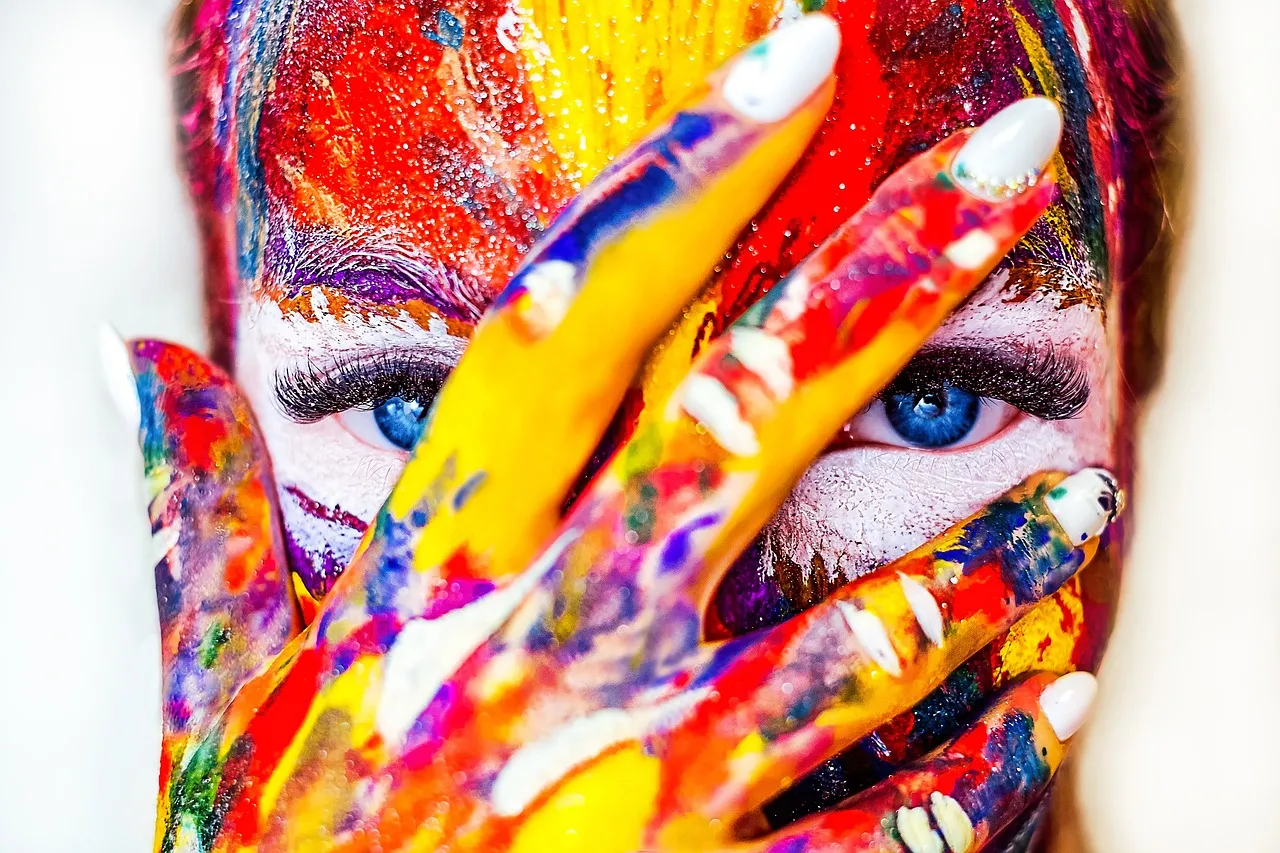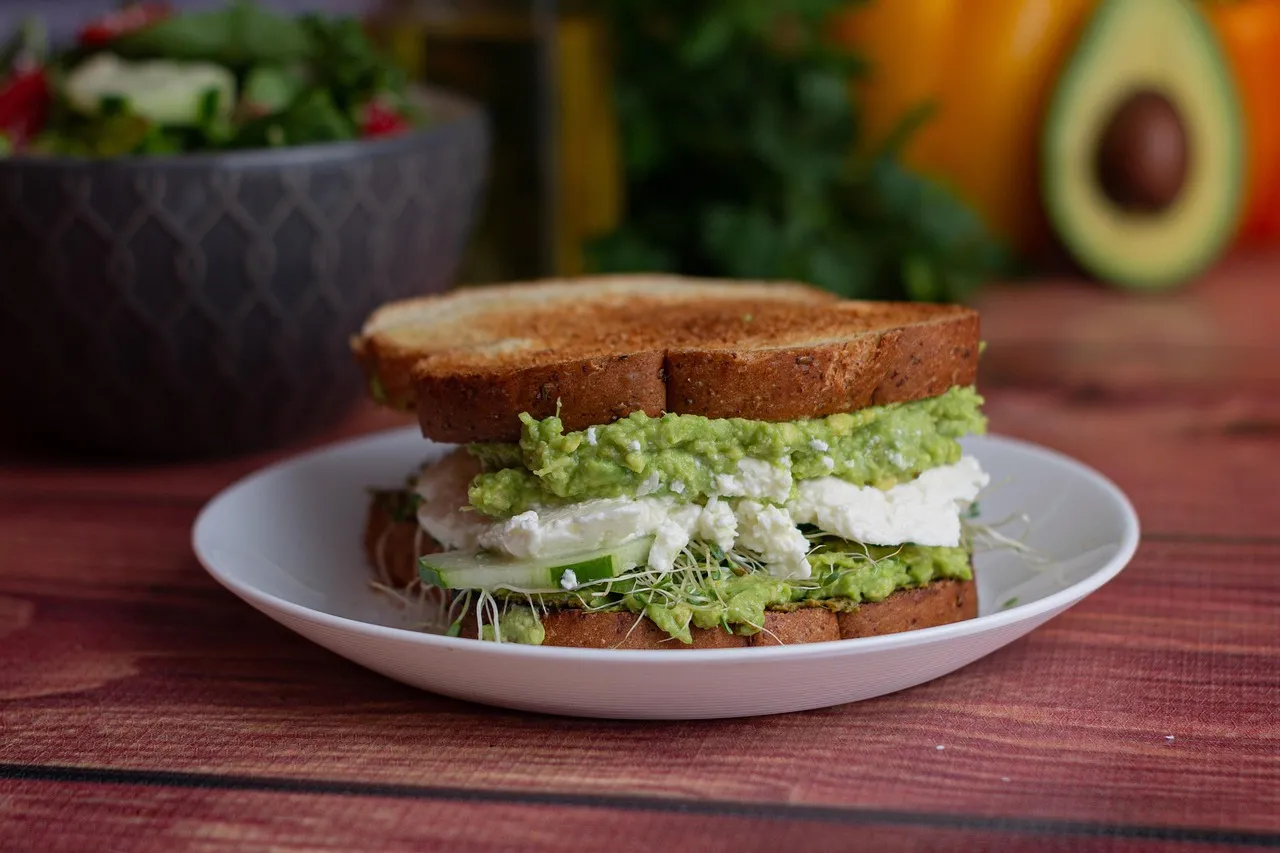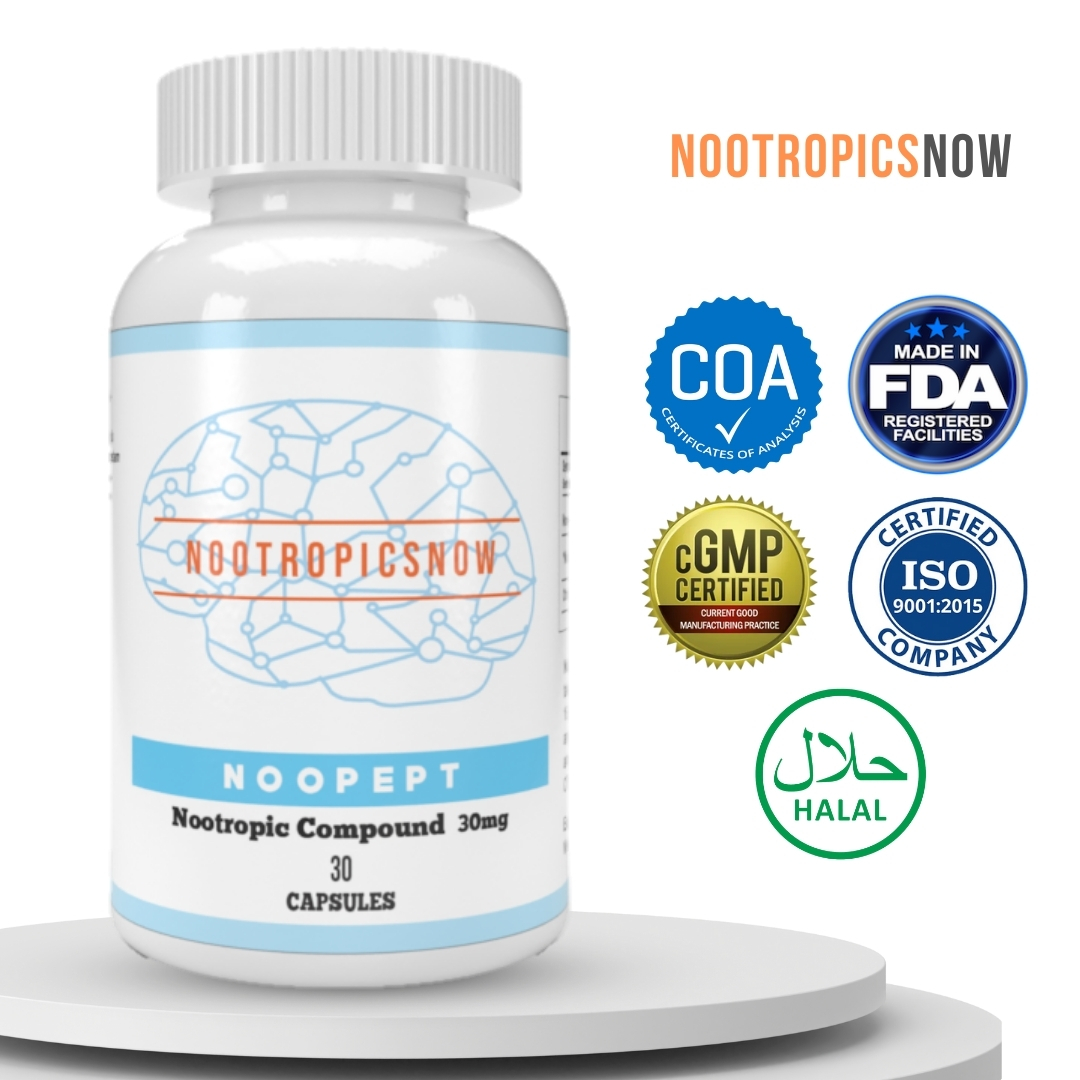Nootropics for Creativity: Boost Your Brain

`markdown
Nootropics for Creativity: Unlocking Your Creative Potential
Creativity fuels innovation, problem-solving, and artistic expression. While some consider creativity an innate talent, it’s a cognitive skill that can be enhanced. Nootropics, or cognitive enhancers, offer a potential avenue to boost creativity by optimizing brain functions involved in innovative thinking. These substances can influence focus, memory, mood, and cognitive flexibility, all crucial aspects of the creative process.
Understanding Creativity and the Brain
Creativity is more than just “thinking outside the box.” It involves a complex interplay of different cognitive processes. Neuroscientists recognize two primary modes of thinking integral to creativity: divergent and convergent.
Successful creativity relies on effectively navigating between these two modes, leveraging the expansiveness of divergent thinking and the focus of convergent thinking. Certain brain regions play a crucial role in these processes:
Therefore, nootropics enhancing function within these brain regions could, theoretically, augment the creative potential.
How Nootropics Can Enhance Creative Thinking

Nootropics exert their effects through various mechanisms, impacting neurotransmitter levels, brain energy metabolism, and neuroplasticity. The following benefits directly correlate with improved creative output:
Top Nootropics for Creativity
While individual responses can vary, the following nootropics have shown promise in enhancing creativity and related cognitive functions:
| Nootropic | Mechanism of Action | Potential Benefits for Creativity | Considerations |
|---|---|---|---|
| ————————– | ————————————————————————————– | ————————————————————————————————- | ——————————————————————————————— |
| L-Theanine | Increases alpha brain wave activity, modulating neurotransmitters like GABA and dopamine | Promotes relaxation without sedation, reduces anxiety, enhances focus and cognitive performance. | Generally well-tolerated, but may cause mild drowsiness in some individuals. |
| Caffeine | Adenosine receptor antagonist, increasing alertness and dopamine levels | Enhances alertness, focus, and energy levels. Can improve motivation and reduce perceived exertion. | Can cause anxiety, insomnia, and jitters in sensitive individuals. Moderate use is recommended. |
| Creatine | Increases phosphocreatine stores in the brain, improving energy availability | Enhances working memory, processing speed, and cognitive performance, particularly during demanding tasks. | Generally safe, but some individuals may experience gastrointestinal discomfort. |
| Bacopa Monnieri | Enhances synaptic transmission, reducing anxiety and improving memory retention | Improves memory, learning, and cognitive flexibility. May also reduce anxiety and promote relaxation. | May cause mild gastrointestinal upset in some individuals. |
| Rhodiola Rosea | Adaptogen, reduces stress and fatigue by modulating the stress response system | Enhances mental performance, reduces fatigue, and improves mood. | May cause mild anxiety or insomnia in some individuals. |
| Phosphatidylserine (PS) | Supports cell membrane structure and function, improving neurotransmitter signaling | Supports memory, focus, and cognitive function. May also reduce stress and improve mood. | Generally well-tolerated, but may cause mild gastrointestinal upset in some individuals. |
| Lion’s Mane Mushroom | Stimulates Nerve Growth Factor (NGF) synthesis, promoting neurogenesis | May enhance memory, learning, and cognitive function. Potential neuroprotective effects. | Relatively new research, but generally considered safe. |
| Piracetam | Modulates acetylcholine receptors, enhancing neuronal excitability and information processing | Enhances cognitive function, particularly memory and learning. May also improve creativity. | Can cause anxiety, insomnia, and headaches in some individuals. Prescription often needed. |
| Noopept | Similar mechanism to Piracetam, but with potentially greater potency | Enhances cognitive function, memory, and focus. May also improve mood and reduce anxiety. | Can cause anxiety, insomnia, and headaches in some individuals. |
Diving Deeper into Specific Nootropics:
L-Theanine: Found primarily in tea, L-Theanine is known for promoting a state of “relaxed alertness.” It increases alpha brain wave activity, which is associated with creativity and relaxation. It works synergistically with caffeine to enhance focus while mitigating the jittery side effects often associated with caffeine consumption. This combination can be a potent tool for creative work.
View Product
Bacopa Monnieri: This Ayurvedic herb has been traditionally used to enhance memory and learning. It works by improving synaptic transmission and reducing anxiety. It has been shown to improve verbal learning, word recall, and memory retention, all of which can be beneficial for creative writers, speakers, and artists who rely on a strong memory and cognitive flexibility.
View Product
Phosphatidylserine (PS): PS is a phospholipid that is a key component of cell membranes, particularly in the brain. It supports cell membrane structure and function, improving neurotransmitter signaling and cognitive function. It is believed to improve memory, focus, and cognitive function, which could support creativity.
Rhodiola Rosea: This adaptogenic herb helps the body adapt to stress, both physical and mental. It works by modulating the stress response system, reducing fatigue and improving mental performance. Rhodiola can be particularly useful for creatives who experience stress and burnout due to demanding projects and deadlines.
View Product-Nootropic-Brain-Booster-Energy-Mood-i.202321183.22939543235)
Lion’s Mane Mushroom: This unique mushroom has gained popularity for its potential neurotrophic effects. It stimulates the synthesis of Nerve Growth Factor (NGF), a protein that promotes the growth and survival of neurons. This could enhance memory, learning, and cognitive function over time, providing a foundation for enhanced creativity.
View Product
Piracetam & Noopept: These synthetic nootropics are part of the racetam family and are known for their cognitive-enhancing effects. They are believed to modulate acetylcholine receptors, enhancing neuronal excitability and information processing. While research on their direct effects on creativity is limited, they are often reported to improve cognitive function, memory, and focus, which can indirectly support creative thinking.
View Product-Nootropic-Brain-Focus-Memory-Booster-Supplement-Neuropro-i.202321183.4051573042)
Caffeine: A readily accessible stimulant, caffeine boosts alertness by blocking adenosine receptors in the brain and boosting dopamine levels. It can increase focus and motivation. While it might boost creative work in the short-term, it is not ideal for every user due to the potential for anxiety and insomnia, as well as habituation with regular use.
Creatine: Most commonly known for its muscle building properties, creatine can also boost brain energy levels, thereby improving working memory, focus, and processing speed. Creatine’s effect on the brain is related to its influence on energy metabolism. As creative tasks can be draining, creatine’s ability to enhance energy levels can translate to better focus and motivation to engage in such work.
Responsible Use and Safety Considerations
It’s crucial to approach nootropics with caution and prioritize safety. Not all nootropics are created equal, and individual responses can vary significantly.
Stacking Nootropics for Enhanced Creativity
“Stacking” refers to combining different nootropics to achieve synergistic effects. While this can be a more effective approach, it also increases the risk of side effects and interactions. Some common stacks for creativity include:
The Future of Nootropics and Creativity
Research on nootropics and creativity is ongoing, and new compounds and combinations are constantly being explored. As our understanding of the brain and creativity deepens, we can expect to see more targeted and effective nootropics emerge.
However, it’s important to remember that nootropics are not a magic bullet for creativity. They are tools that can be used to support and enhance cognitive function, but they are not a substitute for hard work, dedication, and a genuine passion for creativity. Nootropics must be seen as an aid to foster creativity. Ultimately, the ability to generate novel and meaningful ideas depends on the individual’s unique skills, experiences, and perspectives.
By embracing a holistic approach that combines nootropics with a healthy lifestyle and a commitment to creative exploration, individuals can unlock their full creative potential and make a significant contribution to the world.
`
Nootropics for Creativity: Unleashing Your Inner Innovator
Creativity, the cornerstone of innovation and progress, isn’t solely a mysterious gift bestowed upon a select few. In fact, the intricate dance between divergent and convergent thinking can be amplified and honed through targeted cognitive enhancement. Nootropics, substances designed to bolster cognitive functions, have emerged as potential allies in the quest to unlock untapped creative potential. By fine-tuning focus, amplifying cognitive flexibility, and fostering a positive mental landscape, nootropics offer a promising avenue for individuals seeking to elevate their creative endeavors.
Deconstructing Creativity: A Cognitive Perspective
Creativity involves a delicate interplay of various cognitive processes. Understanding these underlying mechanisms is crucial for selecting and utilizing nootropics effectively. Let’s dissect the core components of creative thinking:
The Neural Landscape of Creativity
Neuroimaging studies have illuminated the brain regions intricately linked to creativity. The prefrontal cortex (PFC), responsible for executive functions such as planning and decision-making, plays a pivotal role in guiding the creative process. The default mode network (DMN), active during introspective thought and mind-wandering, fosters the incubation of ideas and facilitates the emergence of creative insights. Neurotransmitters like dopamine, serotonin, and norepinephrine also play a significant role in modulating cognitive function.
The table below summarizes the key brain areas associated with creativity:
| Brain Region | Function | Relevance to Creativity |
|---|---|---|
| ——————— | ———————————————————- | ————————————————————————————- |
| Prefrontal Cortex | Executive functions, planning, decision-making | Guiding the creative process, selecting relevant ideas, and inhibiting irrelevant ones |
| Default Mode Network | Introspective thought, mind-wandering, autobiographical memory | Facilitating idea incubation, generating novel associations, and fostering insights |
| Anterior Cingulate Cortex | Conflict monitoring, error detection | Identifying and resolving cognitive conflicts, enabling flexible adaptation |
| Temporal Lobe | Semantic memory, language processing | Accessing and manipulating knowledge, forming new connections between ideas |
How Nootropics Can Fuel the Creative Spark
Nootropics, with their capacity to modulate brain function, offer a unique opportunity to enhance creativity. By targeting specific cognitive processes, these substances can unlock new levels of creative potential.
Nootropic Spotlight: A Detailed Look at Creativity Enhancers
Let’s delve into some specific nootropics that have shown promise in enhancing creativity:

View Product
Table summarizing the popular nootropics for creativity:
| Nootropic | Primary Benefits | Mechanism of Action | Potential Benefits for Creativity |
|---|---|---|---|
| ——————- | ——————————————————————– | ———————————————————————————– | ————————————————————————————— |
| L-Theanine | Relaxation, reduced anxiety, enhanced focus | Increases alpha brainwave activity | Promotes a calm, focused state conducive to creative flow |
| Bacopa Monnieri | Memory enhancement, improved learning, reduced anxiety | Increases cerebral blood flow, protects against oxidative stress | Enhances memory and cognitive function, supporting creative thinking |
| Rhodiola Rosea | Stress reduction, fatigue reduction, improved mood | Adaptogenic properties, modulates neurotransmitter levels | Reduces stress and fatigue, improving mental performance for sustained creative output |
| Citicoline | Enhanced focus, attention, cognitive flexibility | Increases acetylcholine levels | Supports creative problem-solving by improving cognitive function |
| Creatine | Improved working memory, enhanced mental endurance | Increases ATP production in the brain | Enhances cognitive performance, indirectly supporting creativity |
| Noopept | Memory enhancement, focus improvement, enhanced learning | Promotes neuroplasticity | Supports cognitive flexibility and creative thinking |
| Lion’s Mane Mushroom | Neuroprotection, cognitive enhancement, improved memory | Stimulates nerve growth factor (NGF) production | Promotes brain cell growth and improves cognitive function, potentially impacting creativity |
The Art of Stacking: Synergistic Combinations for Enhanced Creativity
Combining nootropics can often produce synergistic effects, amplifying their individual benefits and further enhancing creativity. Here are a few popular nootropic stacks for creativity:
Responsible Use: Safety and Considerations
While nootropics offer the potential to enhance creativity, it’s crucial to approach their use responsibly. Consulting with a healthcare professional before starting any nootropic regimen is essential, especially for individuals with pre-existing medical conditions or those taking other medications. Starting with low doses and gradually increasing them as needed is recommended. Monitoring for potential side effects and adjusting the dosage accordingly is crucial. It’s important to remember that nootropics are not a substitute for healthy lifestyle habits such as adequate sleep, a balanced diet, and regular exercise. These factors play a crucial role in overall cognitive function and creative potential.
The Future of Creativity: Nootropics and Beyond
Nootropics represent a promising frontier in the quest to unlock human creativity. As research continues to unravel the intricate workings of the brain and the cognitive processes involved in creative thinking, we can expect to see even more targeted and effective nootropics emerge. By harnessing the power of these substances responsibly, individuals can unlock their inner innovator and contribute to a more creative and innovative world.
Disclaimer: This information is intended for educational purposes only and should not be considered medical advice. Always consult with a healthcare professional before starting any new supplement regimen.







